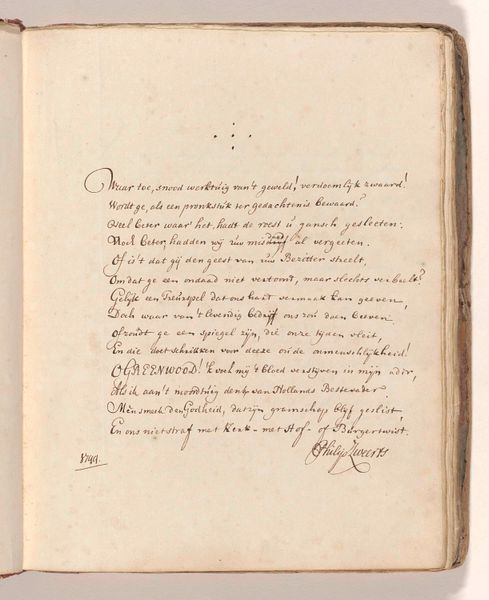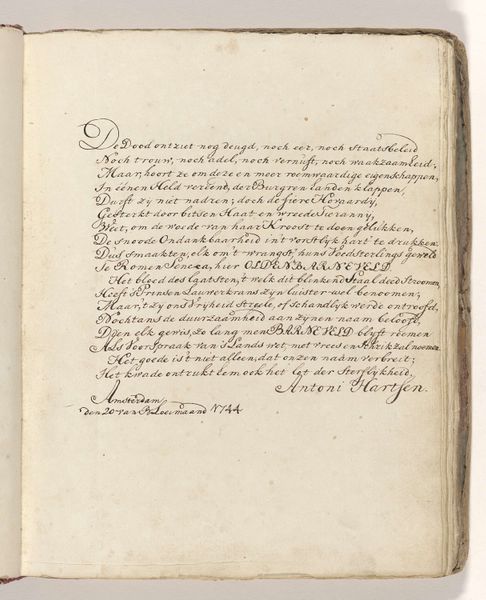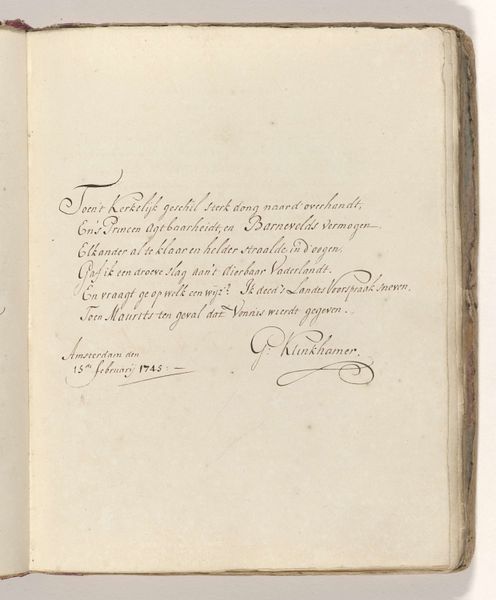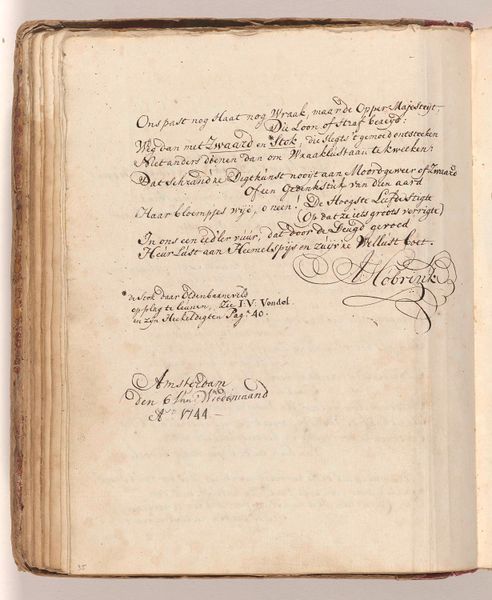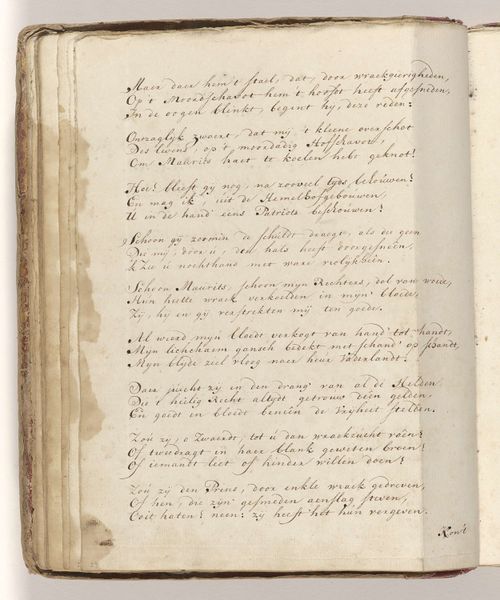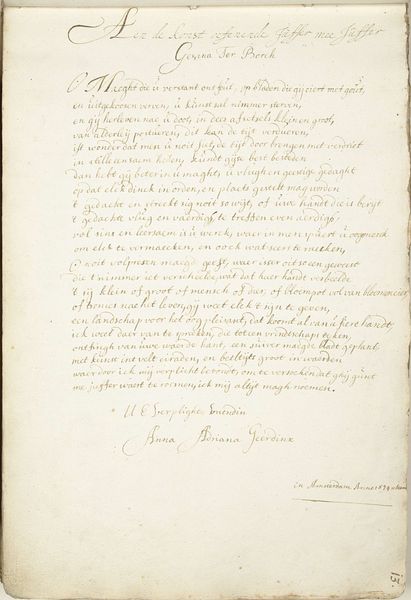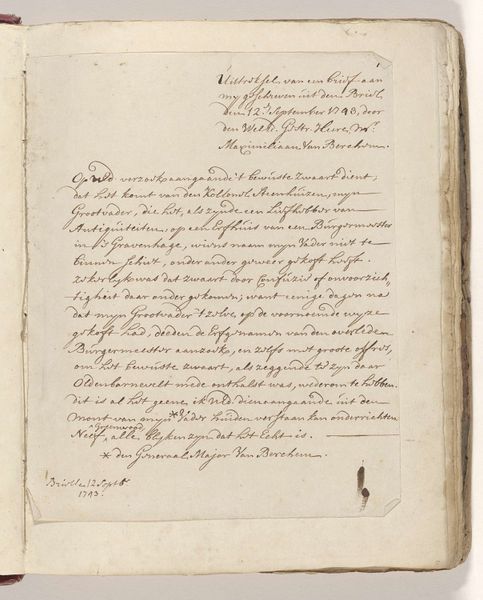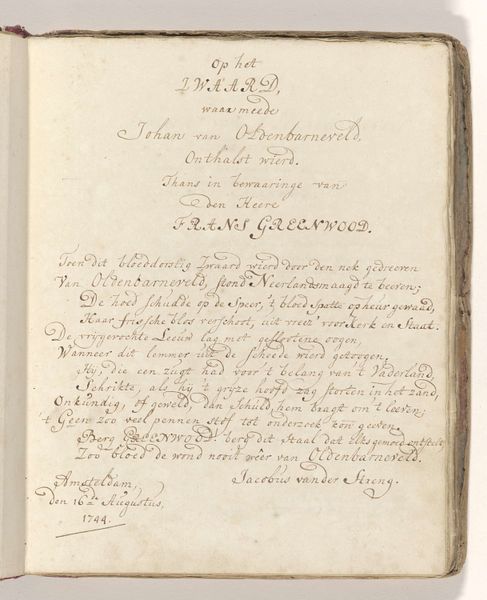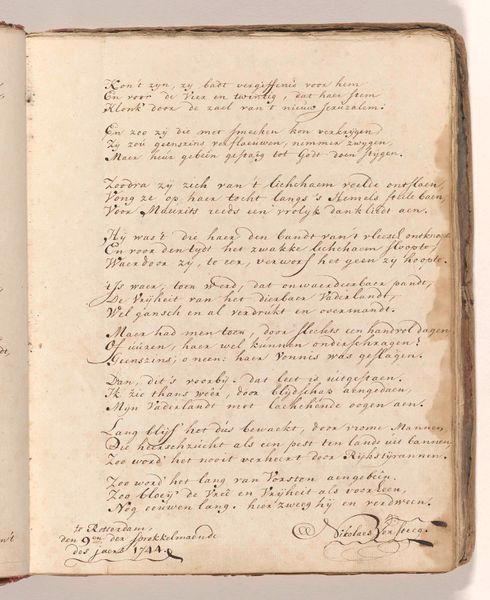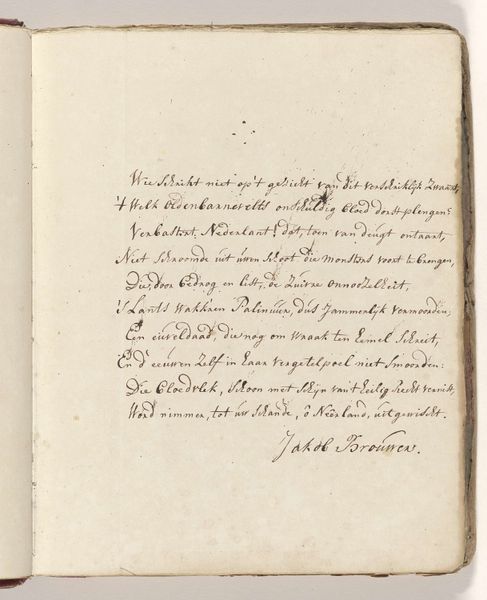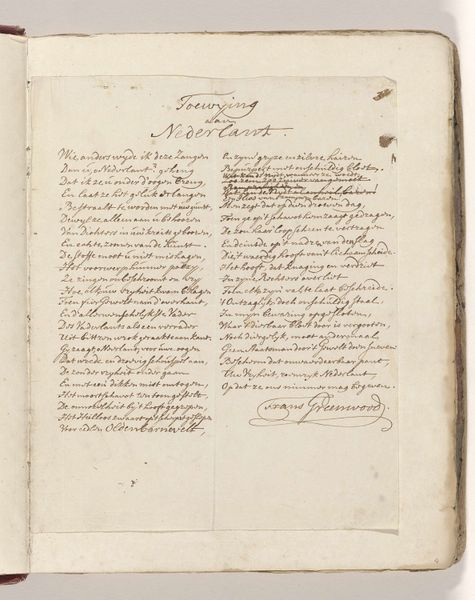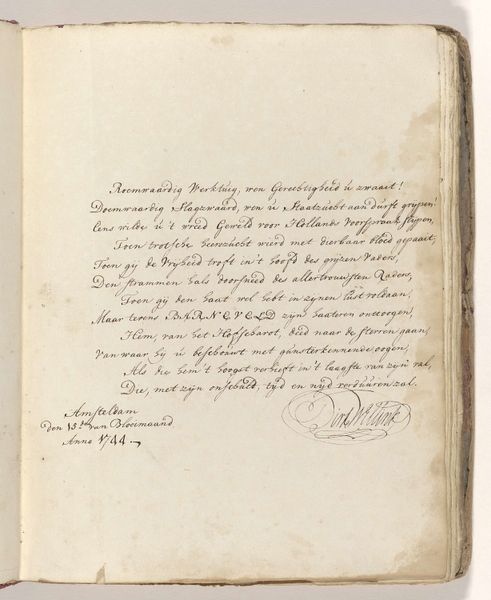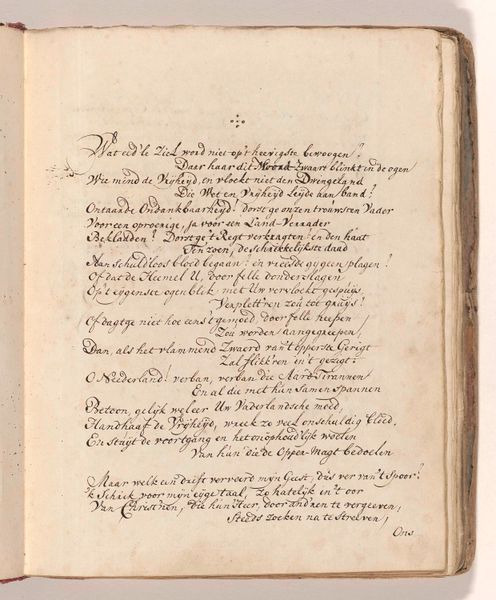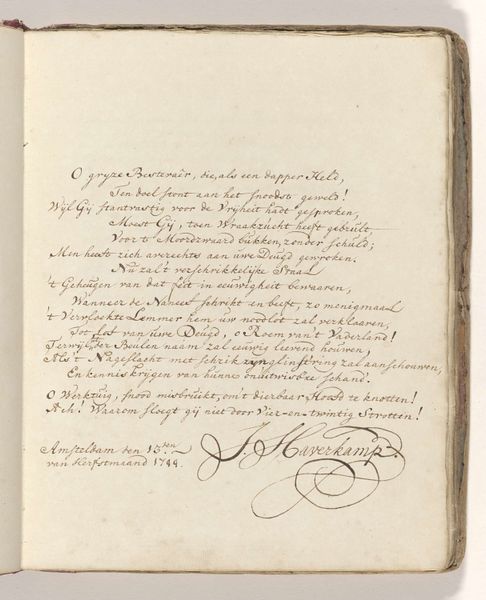
Gedicht op het zwaard waarmee Johan van Oldenbarnevelt in 1619 zou zijn onthoofd 1743 - 1745
0:00
0:00
drawing, paper, ink
#
drawing
#
aged paper
#
toned paper
#
baroque
#
sketch book
#
paper
#
personal sketchbook
#
ink
#
coloured pencil
#
sketchbook drawing
#
watercolour bleed
#
watercolour illustration
#
sketchbook art
#
watercolor
#
calligraphy
Dimensions: height 275 mm, width 220 mm
Copyright: Rijks Museum: Open Domain
Editor: Right now, we’re looking at a page from a sketchbook. The piece is called "Gedicht op het zwaard waarmee Johan van Oldenbarnevelt in 1619 zou zijn onthoofd" – or, "Poem on the sword with which Johan van Oldenbarnevelt was supposedly beheaded in 1619." It’s a drawing in ink and watercolor on paper, dating from around 1743-1745, by Frans de Haes. I'm immediately struck by how personal it feels, like a glimpse into someone's private thoughts. What stands out to you when you look at it? Curator: That sense of intimacy is exactly right. Imagine de Haes, alone with his sketchbook, grappling with a historical event, centuries after the fact, using the delicate strokes of ink and the whisper of watercolor. It’s not just history; it's a conversation with history. The aged paper, the looping script... do you get the feeling that the poem itself is a kind of monument? Editor: Absolutely! The calligraphy has a really haunting quality, and how he's penned his signature as "Frans De Haes". It’s like he’s putting himself right there, alongside the poem and the history it reflects on. But why write a poem about *that* sword, so long after the event? Curator: Aha! The million-dollar question. Oldenbarnevelt's execution was a major political flashpoint, a raw nerve in Dutch history. De Haes might be wrestling with themes of justice, power, remembrance… perhaps even subtly critiquing the political climate of *his* own time. Notice the flourish of his signature at the bottom; a bold statement, almost. Editor: So, it's a layered thing: a historical record, a personal reflection, and maybe even a quiet act of rebellion all in one. I love that. Curator: Exactly. It reminds me that art isn't always about grand statements. Sometimes, it's about the quiet murmur of ink on paper, echoing through time.
Comments
No comments
Be the first to comment and join the conversation on the ultimate creative platform.
